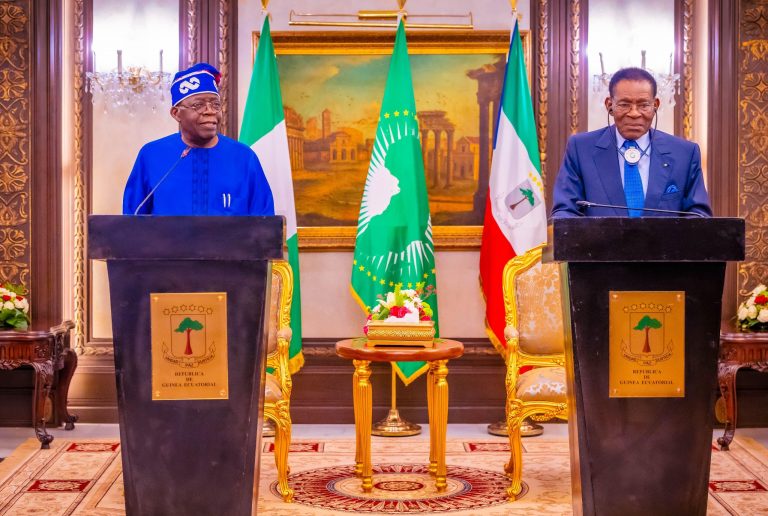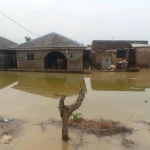The Gulf of Guinea Pipeline Project agreement was signed by President Bola Tinubu and President Teodoro Mbasogo of Equatorial Guinea on Wednesday in Malabo, further solidifying their collaboration for mutual growth.
“The agreement covered legislative and regulatory measures for the gas pipeline, establishment and operation, transit of natural gas, ownership of the gas pipeline, and general principles,” a statement signed by Tinubu’s spokesman, Ajuri Ngelale, on Thursday read.
The press release is headed “President Tinubu and President Mbasogo sign agreement on the Gulf of Guinea gas pipeline.”
During his remarks at the event, Tinubu—who is now on an official three-day visit to Equatorial Guinea—stated that the agreement’s signature will create new avenues for employment and gas development.
He claimed that during a private discussion that took place before the agreement was signed, the two leaders talked about topics related to the development of jobs, food security, multilateral cooperation, and conflict resolution mechanisms on the continent.
“Concerning Africa, conflicts and conflict resolution were discussed. We discussed various areas of conflict and what we can do to promote peace. We talked about the promotion of peace and stability in our countries and growth and prosperity on our continent.
“In the same way that Europe and America have kept themselves and found a solution for their conflicts, we have to look at both inadequate capital, industrialization efforts, research and development programmes, and enlighten our people, navigate our way through problems.
“Instead of the crisis and conflicts that we see in the Republic of Congo, and others, we have to look inwards to solve problems ourselves,’’ the President said.
Additionally, Tinubu disclosed that the topics of food security, the African Continental Free Trade Area, and security challenges were discussed with President Mbasogo.
“We are all going for it. Within Africa and the African Union, we have resolved that we will work together to make sure that the solution to many of our problems in Africa comes from within,’’ he concluded.
The president of Equatorial Guinea stated in his speech that his country’s bilateral relations with Nigeria have been fruitful over a long period of time and that there is a need to strengthen collaboration in a number of important areas.
Mbasogo affirmed that Equatorial Guinea will collaborate with Nigeria to achieve the goal, saying that Africa’s aspiration of having a permanent seat in the UN Security Council is essential for the continent’s development.
The head of Equatorial Guinea stated that the agreement’s signature was crucial to the continent’s progress.
The agreement was also signed by Mr. Simeon Esono, the Minister of Foreign Affairs of Equatorial Guinea, and Ambassador Yusuf Tuggar of Nigeria.
At the agreement’s signing were Chief Lateef Fagbemi, SAN, Minister of Justice and Attorney General of the Federation; Muhammad Abubakar, Minister of Defence; Dr. Olubunmi Tunji-Ojo, Minister of Interior; Ekperikpe Ekpo, Minister of State for Petroleum and Gas; and Dr. Jamila Ibrahim-Bio, Minister of Youth Development.




